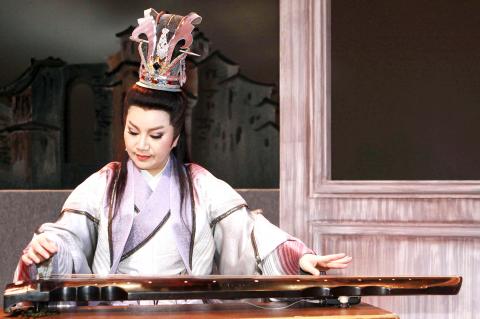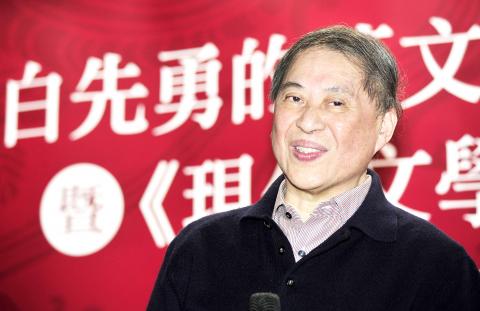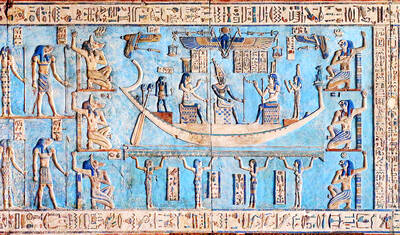In the upcoming theatrical adaptation of renowned writer Pai Hsien-yung’s popular novel Crystal Boys (Niezi, or “sons of sin” in Chinese), director Tsao Jui-yuan has invited the well-known Taiwanese gezaixi opera singer Tang Mei-yun to play the important role of Yang Chin-hai (Mob Boss Yang), which in the theatrical version transforms the elderly homosexual man into a gay female mob boss-like character.
Tang says that this is her first time to play the role of a gay woman. “In the play, I’m a totally different sort of woman. I exhibit motherly love and am willing to protect these youths, so it really becomes an alternative sort of family that has more diversity.” Back in the days when her father performed gezaixi on outdoor stages, there were always women playing gender-neutral roles, she says. “They were precisely the sort of role I’m playing now, with my hair slicked back, wearing a suit, but my father always told me to call those women ‘auntie’ so they would give me gifts.” This image and memory gradually resurfaces in her mind during every rehearsal.
Pai also says that he supports gay marriage and does not beat around the bush about it either, “Homosexuality is a part of humanity. People are striving to have this fact recognized, and if it is finally recognized it means that this country admits that heterosexuals and homosexuals are equal.”

Photo courtesy of Formosa Television
照片由民間民視公司提供
How do you give audiences a novel theatrical experience of Crystal Boys? Tsao says that Pai’s original novel is profoundly meaningful and worth reading repeatedly. Pai says that this theatrical version of Crystal Boys is the second time that the novel has been adapted. “I have the easiest job on the entire team,” Pai says. Apart from Tang being a major source of attraction, Golden Bell Awards winner Ting Chiang, veteran actors Samantha Ko and Fan Kuang-yao, along with renowned idol-actors Mo Tzu-yi and Matt Wu will also be joined by a dance troupe consisting of 17 male dancers, who serve as a key part of the performance and are meant to bring out the joys and tribulations of young homosexual boys trapped in the darkness of an unaccepting society.
The stage adaptation of Crystal Boys will be performed at the National Theater from Feb. 7 to Feb. 16 next year.
(Liberty Times, Translated by Kyle Jeffcoat)
將知名作家白先勇同志經典小說《孽子》搬上舞台劇,導演曹瑞原邀約歌仔戲小生唐美雲詮釋原著中重要人物楊金海(楊教頭),在劇中,這個角色從一位老同性戀變成了大姊頭般的女同性戀者。

Photo: Chen Yi-chuan, Liberty Times
照片:自由時報記者陳奕全
唐美雲說,這是她第一次出飾女同性戀,「戲中我是另外一種女性,有母愛,願意庇護這些小青春鳥,這不正是另外一種多元成家。」唐美雲表示,在她父親演出歌仔外台戲的年代,都會有一些打扮中性的女性,「就是我今天這身打扮,梳油頭,穿西裝,但我父親都教我喊阿姑,喊了才有紅包可以拿。」這個記憶,逐漸回到唐美雲每次的排戲之中,成了內在的形象。
白先勇也說支持同性婚姻,白先勇毫不避諱,「同性戀也是人性的一部分,爭取同志的人性被承認,如果承認,這才表示這個國家承認異性戀、同性戀都平等。」
要如何給觀眾全新的《孽子》舞台印象,曹瑞原說,白老師的原著就充滿深意,值得一再觸碰,白先勇則說,《孽子》舞台劇版已經是二度詮釋,「我是這團隊角色中最輕鬆的一位。」這次除了唐美雲是爆點之外,金鐘影帝丁強、影后柯淑勤、影帝樊光耀;還有實力派偶像演員莫子儀和吳中天,十七位焦點舞團男舞者則將帶來隱身於黑暗王國青春鳥群的悲歡年華。
舞台劇《孽子》明年二月七日起演出,直到二月十六日。地點在國家劇院。
(自由時報記者趙靜瑜)

A: I’m glad that the Grammys will honor the late pop diva Whitney Houston with a Lifetime Achievement Award. Who are this year’s leading nominees? B: Kendrick Lamar is leading the nominations with nine nods, followed by Lady Gaga with seven nods. Bad Bunny, Sabrina Carpenter and Leon Thomas each gained six nods. A: I heard that the song “Golden” from global animated blockbuster KPop Demon Hunters received three nominations, including Song of the Year. B: Blackpink’s Rose and Bruno Mars’ “APT.” also received major recognition with multiple nominations, including Record of the Year, setting a milestone for

It graced statues, colored coffins, and decorated artifacts. It is Egyptian blue, the world’s oldest-known synthetic pigment born in ancient Egypt. Despite its name, it is not limited to a single hue. It ranges from deep blue to greenish tones, often glowing with an almost unearthly brilliance. __1__ In response, the ancient Egyptians developed a synthetic alternative. Not only was it visually striking, but it was also more affordable than imported indigo or natural lapis lazuli. Traces of the pigment have been discovered far beyond Egypt, from wall paintings in Pompeii to tiles in Mesopotamia. However, Egyptian blue began to fall

Contrary to popular belief, glass bottles may pose a greater microplastic risk than plastic ones. A recent study found that beverages stored in glass bottles can contain up to 50 times more microplastic particles than those in plastic containers. Researchers traced most of the contamination to the paint on the outside of the metal caps. The particles found in the drinks matched the cap’s coating in both color and composition. Experts suggest the issue may result from microscopic scratches that form as caps rub against each other during transport or storage. Such scratches can damage the painted coating, leading

Bilingual Story is a fictionalized account. 雙語故事部分內容純屬虛構。 Just yesterday, the boy had helped hang the lucky red couplets. Tonight, as firecrackers signaled the New Year, he lay in bed burning with a surging fever. The herbalist checked the boy’s pulse and went still. “The only cure is in the county town across the mountains,” he said. “But the snow is deep, and the shops are shuttered until the Fourth Day.” The boy’s father looked at the window. “I will go.” “The roads are impassable for a cart,” the herbalist warned. “And too far for a man on foot.” The concerned neighbor